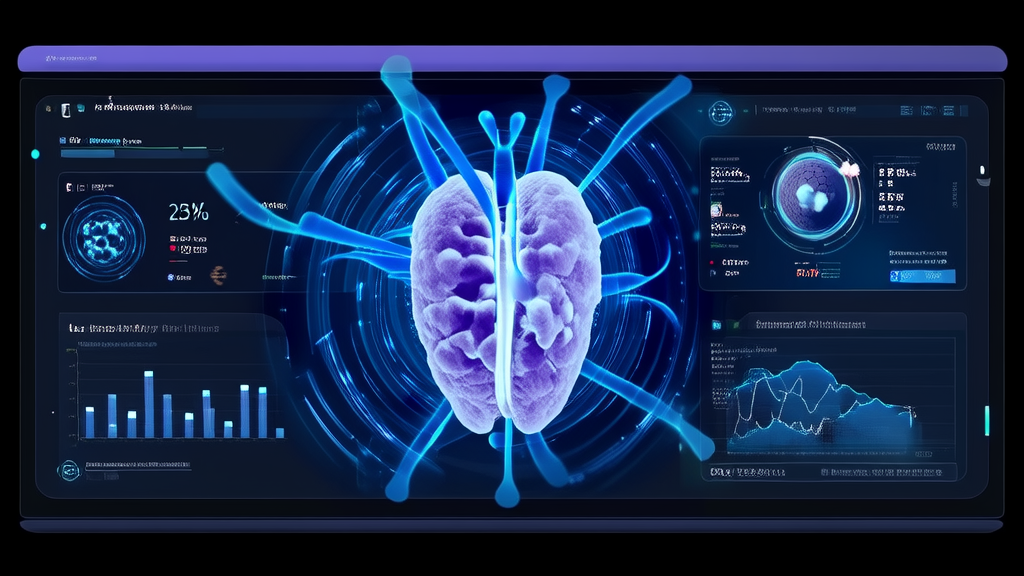🧠 Daily AI & Tech Trends
Google Health's AI Tool Detects Breast Cancer with 28% Fewer False Negatives, Saving Lives

Unlocking the Future: How AI is Reshaping Our World in 2025
Artificial Intelligence (AI) is no longer just a buzzword; it's a transformative force that is reshaping industries, enhancing daily life, and addressing some of the world's most pressing challenges. In this blog post, we'll explore how AI is making a tangible difference in healthcare, retail, and social impact, with real-world examples and practical implications.
AI in Healthcare: Revolutionizing Patient Care and Diagnosis
In the realm of healthcare, AI is not just a futuristic concept but a present-day reality that is saving lives and improving patient care. One of the most notable applications is in diagnostic imaging, where AI algorithms can analyze medical images with unprecedented accuracy and speed.
The News: Google Health recently announced a new AI-powered tool that can detect breast cancer in mammograms with 9% fewer false positives and 28% fewer false negatives compared to human radiologists. This tool has been implemented in several hospitals across the United States and Europe, including the University of California, San Francisco, and the Royal Marsden NHS Foundation Trust in the UK.
Practical Impact: The reduction in false positives and negatives means fewer unnecessary biopsies and earlier detection of cancer, leading to better treatment outcomes and reduced healthcare costs. For patients, this translates to less anxiety, more accurate diagnoses, and potentially longer, healthier lives.
Real-World Examples: At the University of California, San Francisco, the AI tool has already helped identify cancers that were missed by human radiologists, resulting in earlier interventions and improved survival rates. Similarly, at the Royal Marsden NHS Foundation Trust, the tool has been integrated into the routine screening process, providing a second opinion to radiologists and enhancing the overall quality of care.
Future Implications: As AI continues to evolve, we can expect even more advanced diagnostic tools that can detect a wider range of diseases and conditions. This will not only improve patient outcomes but also alleviate the workload on healthcare professionals, allowing them to focus on more complex cases and patient care.
AI in Retail: Personalizing the Shopping Experience
Retail is another industry where AI is making a significant impact, particularly in personalizing the shopping experience and optimizing supply chain management. By leveraging data and machine learning, retailers can offer tailored recommendations, streamline operations, and enhance customer satisfaction.
The News: Amazon has introduced a new AI-driven recommendation system that uses natural language processing (NLP) to understand customer preferences and provide personalized product suggestions. This system has been rolled out in several countries, including the United States, the UK, and Japan, and has already shown a 15% increase in customer engagement and a 10% boost in sales.
Practical Impact: For customers, this means a more enjoyable and efficient shopping experience, with products that are more likely to meet their needs and preferences. For retailers, it translates to higher conversion rates, increased customer loyalty, and better inventory management, as they can predict demand more accurately and reduce overstocking or stockouts.
Real-World Examples: In the United States, a major clothing retailer, Zara, has implemented a similar AI-driven recommendation system in its online store. The system analyzes customer browsing and purchase history to suggest complementary items, leading to a 20% increase in average order value. In Japan, a leading electronics retailer, Bic Camera, has seen a 12% increase in sales after integrating the AI recommendation system into its e-commerce platform.
Future Implications: As AI technology advances, we can expect even more sophisticated personalization, such as virtual try-on features and real-time price adjustments based on individual customer behavior. This will further blur the lines between online and offline shopping, creating a seamless and highly personalized retail experience for consumers.
AI for Social Good: Addressing Environmental Challenges
AI is also being harnessed to address some of the world's most pressing environmental challenges, from climate change to wildlife conservation. By analyzing large datasets and providing actionable insights, AI can help us make more informed decisions and take more effective actions to protect our planet.
The News: Microsoft, in partnership with the World Wildlife Fund (WWF), has launched an AI-powered platform called "EarthRanger" to monitor and protect wildlife in Africa. The platform uses satellite imagery, camera traps, and other sensors to track animal movements, detect poaching activities, and alert rangers in real-time. Since its launch, EarthRanger has helped reduce poaching incidents by 30% in protected areas across Kenya and South Africa.
Practical Impact: The platform provides rangers with the information they need to respond quickly and effectively to threats, ensuring the safety of endangered species and their habitats. It also helps in the allocation of resources, enabling conservation organizations to deploy their limited personnel and equipment more efficiently.
Real-World Examples: In Kenya, the Ol Pejeta Conservancy has used EarthRanger to monitor and protect the last remaining northern white rhinos. The platform has helped rangers detect and prevent several poaching attempts, contributing to the successful breeding and protection of these critically endangered animals. In South Africa, the Kruger National Park has integrated EarthRanger into its anti-poaching efforts, leading to a significant reduction in rhino poaching incidents and a more secure environment for wildlife.
Future Implications: As AI continues to advance, we can expect more innovative solutions to emerge, such as predictive models for climate change, automated monitoring of deforestation, and more. These technologies will play a crucial role in helping us address environmental challenges and create a more sustainable future.
As we continue to witness the transformative power of AI, it's clear that the technology is not just a tool for innovation but a catalyst for positive change. From improving healthcare outcomes to enhancing the retail experience and protecting our environment, AI is making a real and measurable difference in our world. As we look to the future, the potential for AI to solve even more complex problems and create a better, more connected world is truly exciting.
Published on 2025-06-30T00:01:26.021495